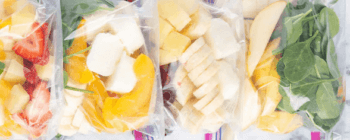A simple and tasty take on chicken fingers!
The temperature ‘Danger Zone’
Keep your family safe during hot summer months
If your family enjoys beach days, camping, picnics and going to the cabin, these tips may help you reduce your risk of food poisoning!
- People are at higher food poisoning risk during summer because the warm, moist conditions are favourable for bacterial growth.
- Foods high in protein, low in acid, and/or high in moisture content can spoil easily. Examples include meat, seafood, and dairy products.
- Most opened sauces, dips, and spreads need to be stored in a cooler (refer to product packaging).
- Keeping perishable foods in coolers filled with ice helps the food stay out of the danger zone. Freezing foods like raw meat can help keep the cooler at a safe temperature.
- Putting raw meats at the bottom of the cooler in sealed containers will help prevent the transfer of harmful bacteria onto other foods in your cooler.
- Keep coolers in the shade and limit the amount of time the cooler is open.
- It is important to wash your hands with soap and warm water before and after handling food. If you do not have access to soap and water while you
are out and about with your family, be sure to bring hand sanitizer along that has an alcohol content of at least 60%.
‘Danger Zone’
Have you ever heard of this term?
Harmful bacteria grow best in what is called the temperature danger zone, which is 4°C to 60°C.
It is important to keep foods chilled below 4°C before cooking, and after cooking keep the hot food above 60°C. Do not let food sit in the danger zone for more than one hour on hot summer days.
Nutrition Services Team 204-856-2055
Campfire Mexican Street Corn
A fun and flavourful side dish to any campfire meal!
Affiliate Health Corporations
Affiliate Health Corporations 
Southern Health-Santé Sud works in partnership with facilities, also known as Affiliate Health Care Corporations within the Southern Health-Santé Sud region.
- Crystal City/Pilot Mound – Rock Lake Health District
- Grunthal – Menno Home for the Aged
- Morden – Tabor Home Inc.
- Niverville – Heritage Life Personal Care Home
- Pilot Mound – Prairie View Lodge
- Ste. Anne – Villa Youville Inc.
- Steinbach – Rest Haven Care Home
- Winkler – Eden Health Care Services
- Winkler – Salem Home Inc.
Nutritional News
Nutritional News
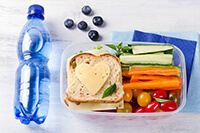
Packing an A+ Lunch
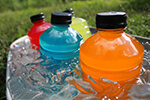
Youth and Sports Drink Marketing
Frequently Asked Questions
What is the reason/purpose for having a school nutrition news?
To provide current, science based nutrition information to inform and educate families. Nutrition information is accessible anywhere, but we use information that is based on evidence.
Who is the intended audience for the school nutrition news?
It is intended for families with children in the school system from kindergarten to grade 12. However, many of the ideas can be used with children younger than kindergarten age.
How can the school nutrition news benefit me and my family?
We give practical tips that can be used by parents when feeding their families. We help families navigate hot topics that are in the news and social media. We provide ideas on how to plan meals along with a tasty recipe each month.
How do I access the school nutrition news in my area?
It is accessible on the Southern Health-Santé Sud website. Many schools put it on their own websites or attach to their newsletters.
How reliable is the information on the news?
The information is based on current scientific evidence and is written by the Registered Dietitians who work in Southern Health-Santé Sud.
Who do I contact if I have questions or feedback regarding the school nutrition news?
If you have concerns or questions, please call the Nutrition Services Team at 204-428-2736. Also, please keep an eye out for and complete the annual survey that is sent out in the spring.
Is the information available in French?
Yes, simply click on the ‘Français’ icon at the top right corner of your screen.
How are the topics decided on?
We select topics based on suggestions from our survey filled by parents, teachers or administration. Some of the topics are standard. For example, there is always one on allergies and one on the nutrition month theme. Regional dietitians also provide ideas for topics.
No Bake Energy Bites
Easy grab and go energy source to take on the run!
Food for Fuel
Homemade Sports Drink
1 cup of water
1/4 cup of any flavored juice
pinch of salt
Little athletes need to drink plenty of fluids before, during and after exercise to help with performance an concentration.
Sports drinks can help restore electrolytes and energy after exercising in the hot summer heat or participating in activities that are longer than 90 minutes. Children in recreational activities and sports DO NOT need the extra sugar from a sports drink. Water or a homemade sports drink will provide the hydration needed during or after exercise.
Good nutrition for little athletes helps:
- prevent injuries
- improve performance
- improves strength and endurance
- feel more energetic and less tired
Before activities
- 3-4 hours prior
- eat a full meal including whole grains, protein and vegetables to prevent upset stomach and have extended energy for the activity
- 1-2 hours prior
- have a small snack to allow for digestion and provide quick energy to perform your best
During activities
- if longer than 60 minutes, it is recommended to have an easy to digest small snack
- small piece of fruit, apple sauce, a couple of energy bites (see recipe
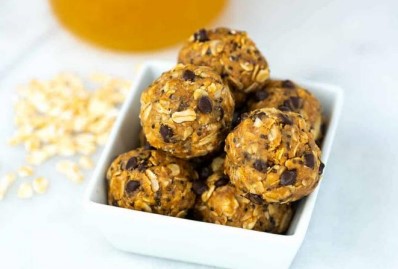 )
)
- small piece of fruit, apple sauce, a couple of energy bites (see recipe
After activities
- have a snack with carbohydrates and protein 30 minutes after to help restore energy and repair muscles
- try a smoothie, nuts or nut butter and fruit, yogurt and granola, crackers and canned tuna
Nutrition Services Team 204-856-2055
Oatmeal Raisin Cookies
Makes 4 dozen cookies!
Why does food language matter?
There’s no denying that some foods provide more nutrition than others, but when we demonize less nutritious foods or label foods as ‘bad’, ‘unhealthy’ or ‘junk’, it can negatively impact our child’s relationship with food.
This can lead to feelings of guild or shame for eating or even wanting those foods. Kids may also internally label themselves as ‘good’ or ‘bad’ based on their food choices. Moving away from these labels allows kids to feel confident in their food choices and learn to enjoy a variety of foods on their own.
The way we talk to our kids about food and nutrition can have a lasting impact on their health. Kids may not know what ‘good for you’ or, healthy, means. Finding ways to talk about food and nutrition to kids in a way they understand, can create positive associations with those foods without attaching moral value to it.
Nutrition Services Team 204-856-2055
News
News
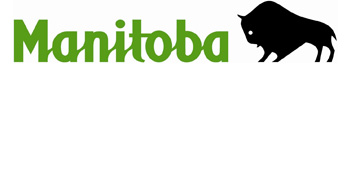
Manitoba Government Partners with Long Plain First Nation to Improve Safety at Portage District General Hospital

Bethesda Regional Health Centre Celebrates One-Year Anniversary of New Renal Dialysis Unit
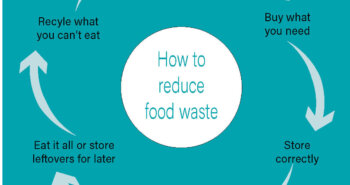
Did you know….

Balanced eating in the Summer


